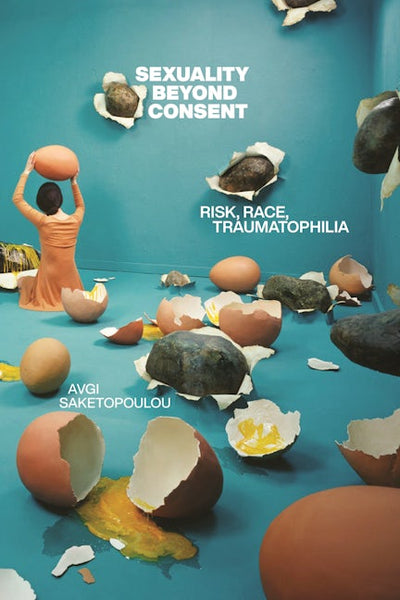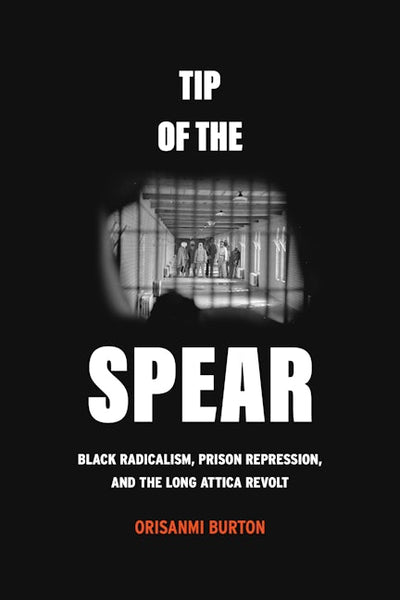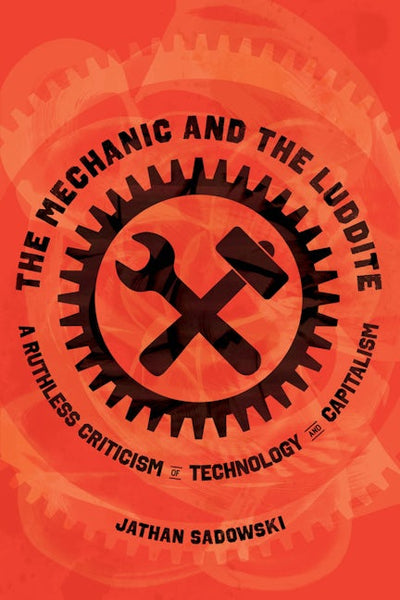You may also like
Sexuality Beyond Consent
Regular price $32.00 Save $-32.00Radical alternatives to consent and trauma
Arguing that we have become culturally obsessed with healing trauma, Sexuality Beyond Consent calls attention to what traumatized subjects do with their pain. The erotics of racism offers a paradigmatic example of how what is proximal to violation may become an unexpected site of flourishing. Central to the transformational possibilities of trauma is a queer form of consent, limit consent, that is not about guarding the self but about risking experience. Saketopoulou thereby shows why sexualities beyond consent may be worth risking-and how risk can solicit the future.
Moving between clinical and cultural case studies, Saketopoulou takes up theatrical and cinematic works such as Slave Play and The Night Porter, to chart how trauma and sexuality join forces to surge through the aesthetic domain. Putting the psychoanalytic theory of Jean Laplanche in conversation with queer of color critique, performance studies, and philosophy, Sexuality Beyond Consent proposes that enduring the strange in ourselves, not to master trauma but to rub up against it, can open us up to encounters with opacity. The book concludes by theorizing currents of sadism that, when pursued ethically, can animate unique forms of interpersonal and social care.

Tip of the Spear
Regular price $29.95 Save $-29.95Tip of the Spear boldly and compellingly argues that prisons are a domain of hidden warfare within US borders. With this book, Orisanmi Burton explores what he terms the Long Attica Revolt, a criminalized tradition of Black radicalism that propelled rebellions in New York prisons during the 1970s. The reaction to this revolt illuminates what Burton calls prison pacification: the coordinated tactics of violence, isolation, sexual terror, propaganda, reform, and white supremacist science and technology that state actors use to eliminate Black resistance within and beyond prison walls.
Burton goes beyond the state records that other histories have relied on for the story of Attica and expands that archive, drawing on oral history and applying Black radical theory in ways that center the intellectual and political goals of the incarcerated people who led the struggle. Packed with little-known insights from the prison movement, the Black Panther Party, and the Black Liberation Army, Tip of the Spear promises to transform our understanding of prisons—not only as sites of race war and class war, of counterinsurgency and genocide, but also as sources of defiant Black life, revolutionary consciousness, and abolitionist possibility.

The Mechanic and the Luddite
Regular price $24.95 Save $-24.95Our society is constantly made to serve the needs of two systems: technology and capitalism. Neither exists outside humans, but both are treated as above and beyond us. The Mechanic and the Luddite offers the critical tools needed to deconstruct these systems—how they work, whom they work for, and what work they do in our lives. With signature style and energy, Jathan Sadowski presents a provocative one-stop shop for understanding the political economy of technology and capitalism.
Each chapter breaks down key features of technological capitalism, offering sharp, synthetic, and authoritative analysis of topics like innovation, labor, data, and risk. It's not enough to know how the machinery of capitalism is put together and how its parts operate; we must also know whom the machines serve and when they should be taken apart, to be rebuilt for new purposes or destroyed for good. The Mechanic and the Luddite provides the political guidance needed to make these crucial decisions.

Deviant Matter
Regular price $30.00 Save $-30.00How deviant materials figure resistance
Yeast ferments, gelatin jiggles, drugs and alcohol froth and bubble, and flesh from animals and plants actively molds and rots. These materials morph through multiple states and phases, and their movement is imbued with a liveliness that is suggestive of volition.
Deviant Matter examines four aesthetic and material categories— gelatinousness, fermentation, putrefaction, and intoxication—to theorize how the modern state seeks to manage deviant populations across multiple scales, from the level of the single cell up to the affective and aesthetic imperatives of the state and its bureaucratic projects. Kyla Wazana Tompkins deploys a new materialist engagement with the history of race and queer life, making an argument for queer of color method as political and disciplinary critique. Deviant Matter delves into a vast archive that includes nineteenth-century medical and scientific writing; newspaper comic strips and early film; the Food and Drug Act of 1906; the literature of Martin Delany, Louisa May Alcott and Herman Melville; and twenty-first century queer minoritarian video, installation, and performance art.
Drawing from the genealogy of Black feminist and queer of color critique, in Deviant Matter rot, jelly, ferment and intoxicating materials serve as figures for thinking about how matter, art, politics, and affect can be read across multiple scales, ranging from the intimate and molecular everyday to the vast print production and inner workings of the state. Tompkins demonstrates that we are moved by our encounters with the materials in Deviant Matter, producing feelings and sensations that she links to a system of social value where these sensations come to be understood as productive, exciting, disgusting, intoxicating, or even hallucinatory. Moving through multiple states and phase changes, falling apart and reforming again, ferment, rot, intoxicants and jelly energize and choreograph both themselves and human behavior. At the same time, these materialities come to signify exactly those populations whose energy escapes the extractive efforts of capitalism and the state.

Queer Lasting
Regular price $30.00 Save $-30.00What queer modes of resilience and care can teach us about enduring environmental collapse
What does it mean to live at the end of life, the end of a family line, the end of a species, or the end of the future itself? When faced with unfurling catastrophes, environmentalists often limit the conversation by focusing on the future. Activists work for the welfare of future generations, while scientists labor over projections of future outcomes. In Queer Lasting, Sarah Ensor asks what this emphasis on the future makes unthinkable. She looks to queer scenes of futurelessness to consider what ecocriticism can learn from queer theory, which imagines and inhabits the immanent ethical possibilities of a terminal present. While living “at the last” is often a terrifying prospect, queer culture reminds us that “to last” is itself also one way to go on.
Defining queerness as a mode of collective life in which these paradigms of lasting—ending and persisting—are constitutively intertwined, Ensor turns to two periods of queer extinction for models of care, continuance, and collective action predicated on futurelessness: the 1890s, in which existing forms of erotic affiliation were extinguished through the binary of homo/heterosexuality, and the 1980s, in which the spread of the AIDS epidemic threatened the total loss of gay lives and of specific erotic ways of life. Through readings that trace unexpected formal resonances across the works of Sarah Orne Jewett, Willa Cather, Melvin Dixon, Essex Hemphill, Allen Barnett, and Samuel Delany, Queer Lasting maintains that queer writing, in its intimacy with death and loss, offers a rich archive for imagining new ways of thinking through environmental collapse. Whether confronting the epidemic contours of the AIDS crisis, theorizing the temporary encounters of cruising, or reckoning with the lives of non-reproductive subjects, this book about futurelessness is also a book about persistence. It demonstrates how, far from giving up in the face of the terminal paradigms that environmentalism fears, queer culture has instead predicated its living—and its lasting—upon them.

The Quaking of America
Regular price $18.95 Save $-18.95The New York Times bestselling author of My Grandmother's Hands surveys America's deteriorating democracy and offers embodied practices to help us protect ourselves and our country.
"All of us need to read this book—and then act on it.”—Angela Rye, NPR political analyst and former CNN commentator
"Resmaa Menakem is one of our country's most gifted racial healers. His brilliant new book could not be more timely."—Michael Eric Dyson, author of Entertaining Race and Long Time Coming
In The Quaking of America, therapist and trauma specialist Resmaa Menakem takes readers through somatic processes addressing the growing threat of white-supremacist political violence.
Through the coordinated repetition of lies, anti-democratic elements in American society are working to incite mass radicalization, widespread chaos, and a collective trauma response in tens of millions of American bodies. Currently, most of us are utterly unprepared for this potential mayhem. This book can help prepare us—and possibly prevent further destruction. This preparation focuses not on strategy or politics, but on practices that can help us
The Quaking of America is a unique and perfectly timed guide to help us navigate our widespread upheaval and build an antiracist culture.







